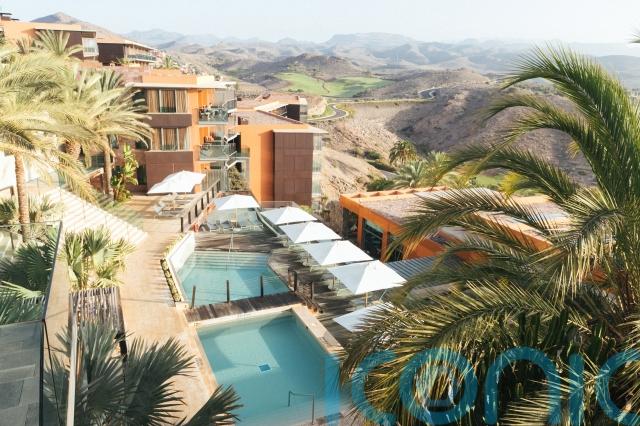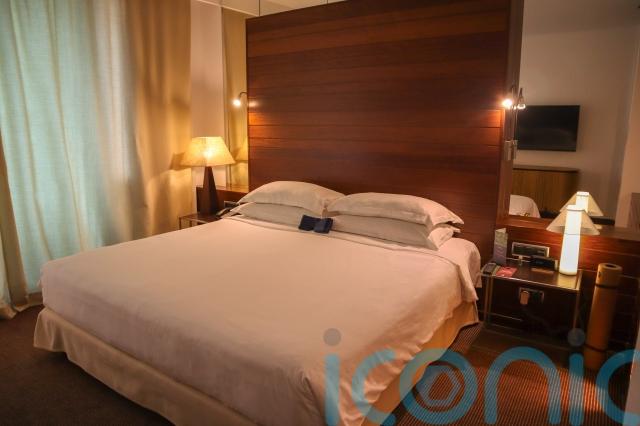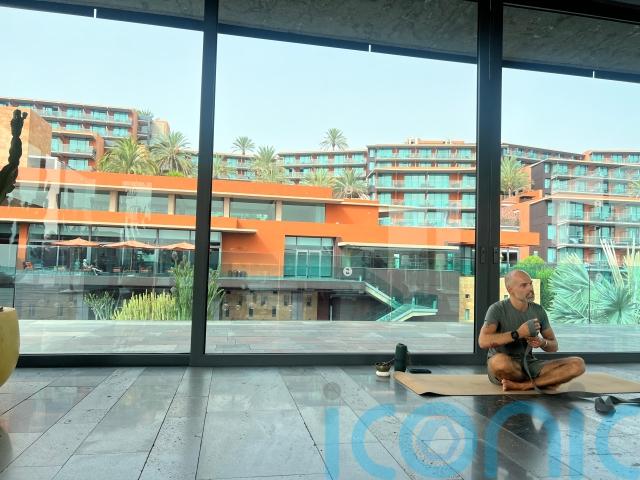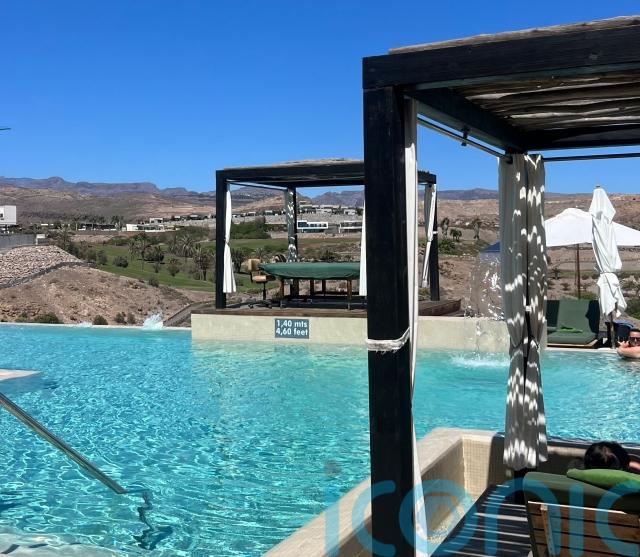
As I sit across from Dr Inmaculada Rodríguez Ulecia, a specialist in clinical neurophysiology and sleep medicine, I’m sceptical. Can changing up my food, environment and habits on a three-day holiday really improve my sleep in the longer term?
Gran Canaria – one of the Spanish Canary Islands off the coast of northwestern Africa – may be better known for its beaches and nightlife, but I’m being whisked inland to the Salobre Hotel Resort & Serenity, near Maspalomas. Here, in the south, it feels far removed from the bustle of tourist hotspots, and as we wind our way up the quiet roads, surrounded by green hills, golf courses and chirping birds, I can almost feel my cortisol levels lower.
This is the backdrop for ‘Tempo’, the Canary Islands’ first sleep-focused retreat, launched by the hotel in collaboration with Hospitales Universitarios San Roque. But I’m promised it’s ‘more than a retreat’ – it’s a three-day ‘lifestyle reset’ designed to help guests reconnect with their sleep needs.

At a time when more and more of us are reporting disrupted sleep, the programme aims to combine medical expertise, tailored nutrition and mindful practices.
Like many people, I don’t get enough sleep – usually five to six hours – which has an impact on my mood and productivity. So I’m keen to know if some expert help can make a difference.
My whole stay here is dedicated to the programme itself. The structure is reassuringly holistic: a medical consultation with Dr Inmaculada, yoga classes with instructor Matteo Sandri, good nutrition and subtle but meaningful bedroom adjustments. From the start, it is clear that this isn’t a spa holiday dressed up as wellness.
My room on the fifth floor was specifically assigned due to the lack of noise. The air con is even created to perform at a lower noise than others to aid better sleep.
Then there are small additions like black-out sleep masks, a Loftie alarm that has more than 100 sleep sounds, including white noise, nature sounds and guided meditations, a red LED light designed to mask distractions and help you stay asleep, as well as chamomile tea and lavender pillow spray – both aimed to aide rest.

Nutrition is a key part of sleep improvements according to the experts and the here it’s a buffet-style diner (not everyone staying at the hotel is on the programme) but it includes specific foods for better rest.
Lean proteins, leafy greens and fruits are all said to help produce both serotonin and melatonin, both of which are crucial for sleep, so I focus on this type of food for my stay, rather than white carbs.
The focus is healthy and mindful choices – all of it is colourful, delicious and a world away from the heavy, quick meals I sometimes grab in the UK.
The days are structured to balance stimulation with relaxation. One morning I join a ‘calm yoga’ session where, admittedly, I struggle to fully switch off at first. The next day, after making a conscious effort to get off my phone and stop checking emails, our class which is a ‘zen stretch,’ leaves me feeling calmer and more attuned to my body.
Massages – a gentle one called ‘sleep serenity’, and another deep, named ‘dreamtime relaxation’ – ease any lingering tension from my shoulders. I even find myself dozing off mid-treatment, a rarity for me and my overactive brain. Between classes, I journal by the rooftop infinity pool, swim lazy laps and walk among the resort’s lush hillsides and golf courses. I’m also given a Fitbit – a watch to track my sleep over the course of three nights.

But the location seems to make some difference too. Being immersed in the rural landscape, with by no less than 227 palm trees in the resort, the surroundings seem to calm the nervous system by design.
The Gran Canaria I experience is tranquil with sunshine galore (temperatures can still sit in the high 20s in late September and October). Here, infinity pools spill into the horizon, while shaded terraces provide quiet corners for reflection. I even find a secret pool hidden and enjoy the solitude.
The staff are warm, attentive, informative but never overbearing, their presence adds to the feeling of being cared for in every sense. And at the end of three days, Dr Inmaculada explains my results.
Sleep scores are calculated out of 100. The sleep score is tallied up based on sleep duration, wake time, how much light, deep and REM sleep is achieved – the higher the number the better, and 100 is considered optimal in shut-eye status.
My first night’s score was 83 (with only one hour and 15 minutes of ‘deep sleep’) but by the final night, my score has improved to 86 (with two hours and seven minutes of deep sleep).
Dr Inmaculada confirms what I have already suspected: ‘Qualitatively good sleep, but insufficient in duration and with some irregularity in schedules’, she writes in her report. My stages of sleep: light, deep and REM, are classed as ‘adequate, with a good amount of deep sleep noted on the final night.’

She offers me some advice for back home; such as going to bed earlier to reach the seven-and-a-half to eight-hour mark, avoiding screens one hour before bedtime, and incorporating breathwork, reading and herbal teas into my pre-bedtime routine.
Although it takes me almost a full day to full embrace the experience and switch off, the difference in how I feel on day one compared to day four is huge. From being full of tension, mindlessly checking my phone and finding it hard to switch off, my mind has calmed down, my body feels lighter and I have more energy to go back and continue normal life.
Heading home, I feel more determined to focus on nutrition, time in nature, breathwork and yoga and the environment in which I sleep. It’s not a stretch to say I had deepest and most peaceful sleep in years on the final night.
Of course I can’t transport Salobre and all its wonders back to my normal day- to-day life, but I know I’m leaving with tools, new knowledge and ways to continue my sleep journey.
The stay, including the Tempo programme, costs from €562 (£491) for three nights, €678 (£592) for five nights, or €764 (£667) for seven nights per person. Visit en.salobrehotel.com
Subscribe or register today to discover more from DonegalLive.ie
Buy the e-paper of the Donegal Democrat, Donegal People's Press, Donegal Post and Inish Times here for instant access to Donegal's premier news titles.
Keep up with the latest news from Donegal with our daily newsletter featuring the most important stories of the day delivered to your inbox every evening at 5pm.